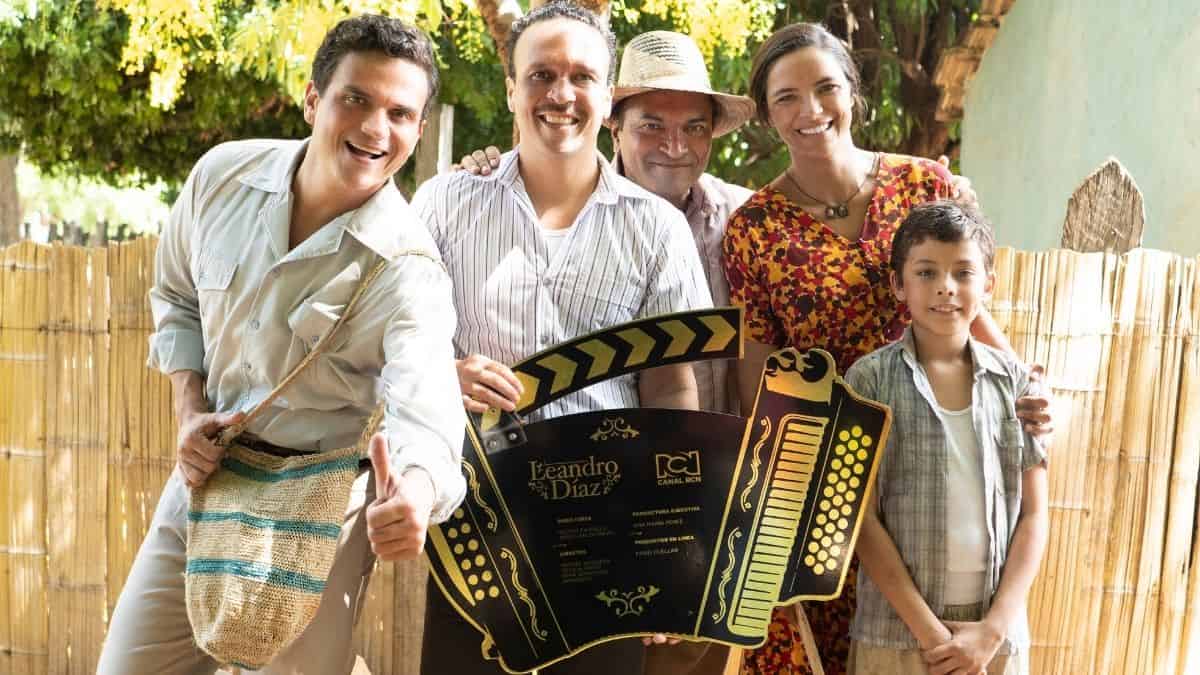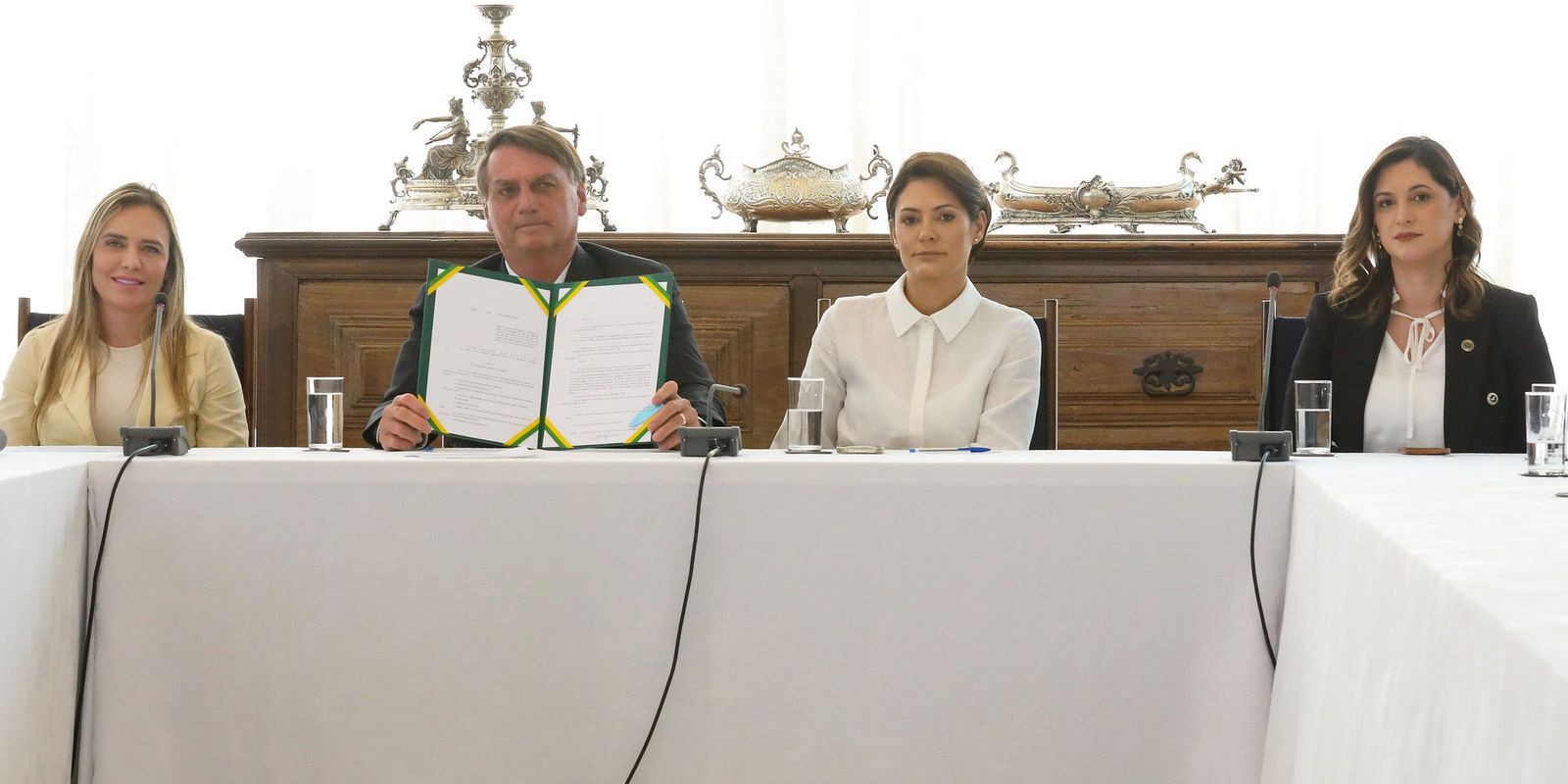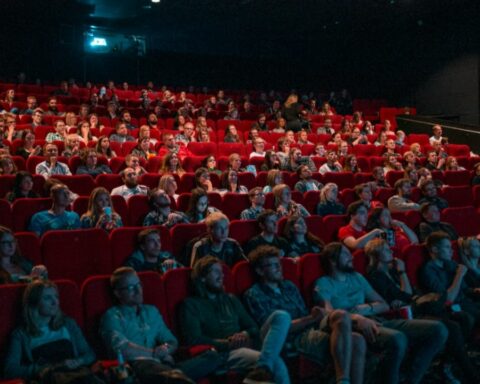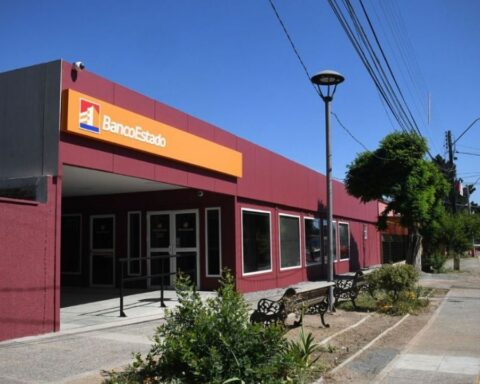“A committee of experts (…) that empowers us to draft principles that guide and limit the work of drafting a new Constitution.” This was how the president of Evópoli, Luz Poblete, described the main agreement reached between the directors of Chile Vamos this Wednesday. The meeting took place while they write a joint draft proposal –UDI, RN and Evópoli– to take to the next meeting between parties with parliamentary representation and whose purpose is to continue designing the mechanism to elaborate a new Fundamental Charter.
The appointment is set for 9 a.m. this Friday, September 23, at the offices of the National Congress in Valparaíso, without the presence of the Minister of the General Secretariat of the Presidency, Ana Lya Uriarte (PS), who -according to parliamentarians – will be added again this Monday to the cycle of talks.
“The fact that there are borders that give Chileans peace of mind is a red line for conversation,” said the deputy and secretary general of the National Renewal (RN), Diego Schalper. He was referring to the most specific agreement reached by Chile Vamos this Wednesday: to propose a committee of experts – chosen by parliamentarians according to the forces in Congress – to draft organizing principles before the operation of the constituent body.
One of the knots within the opposition coalition is whether this group of experts would accompany the constituent process (elected representatives) and, if it does, whether it would have a voice and a vote.
In addition, those present at the meeting pointed out that the directive rejected an entry plebiscite that gives the option of reforms via Congress. However, another of the dilemmas is whether to leave open the possibility of a referendum on the mechanism to prepare a new Magna Carta, in the event that they do not reach agreements at the conversation table.
In this regard, the talks at the party table with parliamentary representation will resume after their suspension on Tuesday, September 13, when Chile Vamos announced that he was staying away from the appointment scheduled for Thursday the 15th.
Decision taken after perceiving an attempt to “pauteo” by government officials, specifically when the spokeswoman for La Moneda, Camila Vallejo (PC), added points as indigenous peoples and the participation of independents to agreements that had been held up to that moment between collectivities; also, pressure that the leaders felt from the benches; and internal differences in the coalition.
For 1:30 p.m., the party directives of Chile Vamos were summoned to the headquarters of Renovación Nacional for lunch. The objective, as reported, was “to analyze and establish the necessary guidelines to continue with a new constituent process.”
After the set time they still hadn’t started, and you could see the president of the UDI, Javier Macaya, the head of the UDI bench of deputies, Jorge Alessandri, and his counterpart from the Evópoli bench of deputies, Francisco Undurraga, talking leaning on the window of one of the rooms on the second floor of the building. Another of those present was Senator Manuel José Ossandón (RN).
They still hadn’t sat down at the table, awaiting the arrival of the National Renewal (RN) board. Senator Francisco Chahuán, president of said group, and deputy Diego Schalper, general secretary of the same, arrived around 2:00 p.m. They came from a meeting in the former Congress with the head of the Senate, Álvaro Elizalde, who has organized, together with the head of the Lower House, the meetings with a view to a constituent design. And prior to that they had met with former President Sebastián Piñera, just as days before they held a conversation with Ricardo Lagos (PS), and this Thursday they will see Eduardo Frei (DC).
According to attendees, Deputy Schalper was writing on a blackboard during the talks. Present at the talks, they indicated that each party has put its key points on the table. However, they explained that the one that has attracted the most support is that of the proposal that the National Renewal board has written. It is about the existence of “thematic borders; a committee of experts to draw up a regulation and points in common; an election of conventionals, or rather a council of 50 people, in March; national lists, and a committee of experts”.
Plebiscitation for reforms via Congress is ruled out
Close to the directives of Chile Vamos, they assured that the idea of an entry plebiscite that gives the option of having a Convention or that this be resolved through reforms, is discarded. “We are not going to accept this, because it is questioning the word of the parties,” they pointed out, thus disassociating themselves from the option supported by the Republican Party and the People’s Party. Some were emphatic in recalling that these last two communities participated in the strip for Rejection that promoted the slogan “Reject for a better one”.
The same ones who have been in the talks added that the option to hold a plebiscite on whether to reform via Congress or Convention is promoted by “the toughest world on the right”, represented –according to members of Chile Vamos– by the Republican Party, but also by some parliamentarians from Renovación Nacional, who make up a point of pressure for the leaders that carry out the talks.
Although they explained that a plebiscite would not be convenient in terms of time, since they calculate that it could postpone the start of the constitutional process for months and generate uncertainty, an entry referendum is not yet completely ruled out. Why? They still leave the door open for a plebiscite to refer to the mechanism and give the option of expert advice.
Thus, they affirmed that a plebiscite that gives the option of reforms to the 1980 Constitution “has no political basis, the citizenry does not say that they do not want changes, they said that they did not want the text of the Convention”, but they clarified that, if there is a entry plebiscite, this would have to consult “by the mechanism.”
They do not close this door, they explained, because senators of Democratic Socialism have seen the possibility of supporting a committee of experts. In addition, they added that they know that at the negotiating table between parties they are going to have to give in on certain points, and for now their priority is to promote the creation of a committee of experts that sets principles to limit the action of those who write the constitutional proposal. .
Committee of experts and the knot of whether they will have a voice and a vote
“The political committee or the specialists should work from now on to guide the modifications to 135 and 142. (…) We have said that the experts should be chosen in proportion to the forces that are in Congress,” announced Francisco Chahuán, RN helmsman, leaving the meeting this Wednesday. The leaders of the center-right said that hopefully next week a committee of experts would be convened, if their idea floated between the parties this Friday.
“There is no room for refoundation attempts. Blank sheets have no space in the work we are going to do. There is no space to imitate the mechanism that originated a failed Convention that divided Chileans”, added the president of RN.
One of the most concrete agreements of Chile Vamos and that he will propose this Friday at the conversation table between parties, is that a committee of experts be elected according to representation in Congress. There they assured that old authorities could be there, such as former Presidents of the Republic, if a party incorporates them into its spaces. The body would be in charge of safeguarding defined principles or borders, as they have also been called. Its resolutions would have to be binding, that is, function as limits for the drafting of the constitutional proposal of those who are elected by the citizens.
They stressed that the edges of the center-right would be the ten common commitments that they raised during the campaign and that they addressed issues such as the social and democratic state of law, defend the existence of the Senate and end the compulsory preventive control of the Constitutional Courtamong others, more minimum points raised in the proposal for National Renewal.
The points that have been advanced are that Chile is a unitary State, in order to avoid the concept of plurinationality and indigenous justice systems; also, the independence and strengthening of the three powers of the State; that the President be the one with the initiative in matters of public spending; “freedoms and rights that are important to Chileans, such as the right to property, the freedom to choose and the non-expropriation of pension funds”.
Regarding the result of that body, they said that in order to be binding, it could be incorporated into article 135, which contains basic principles such as the duty to respect the character of the Republic of the State of Chile, its democratic regime, final and enforceable judicial decisions and treaties international ratified by the country and that are in force; be voted on by Congress and become an organic law; or be protected in the regulations of the constituent body.
The president of the UDI, Javier Macaya, assured that these limits are fundamental for the center-right: “This is a chain. (…) Those principles for us are an important guarantee that the talks can continue with formulas or mechanisms”, he maintained.








